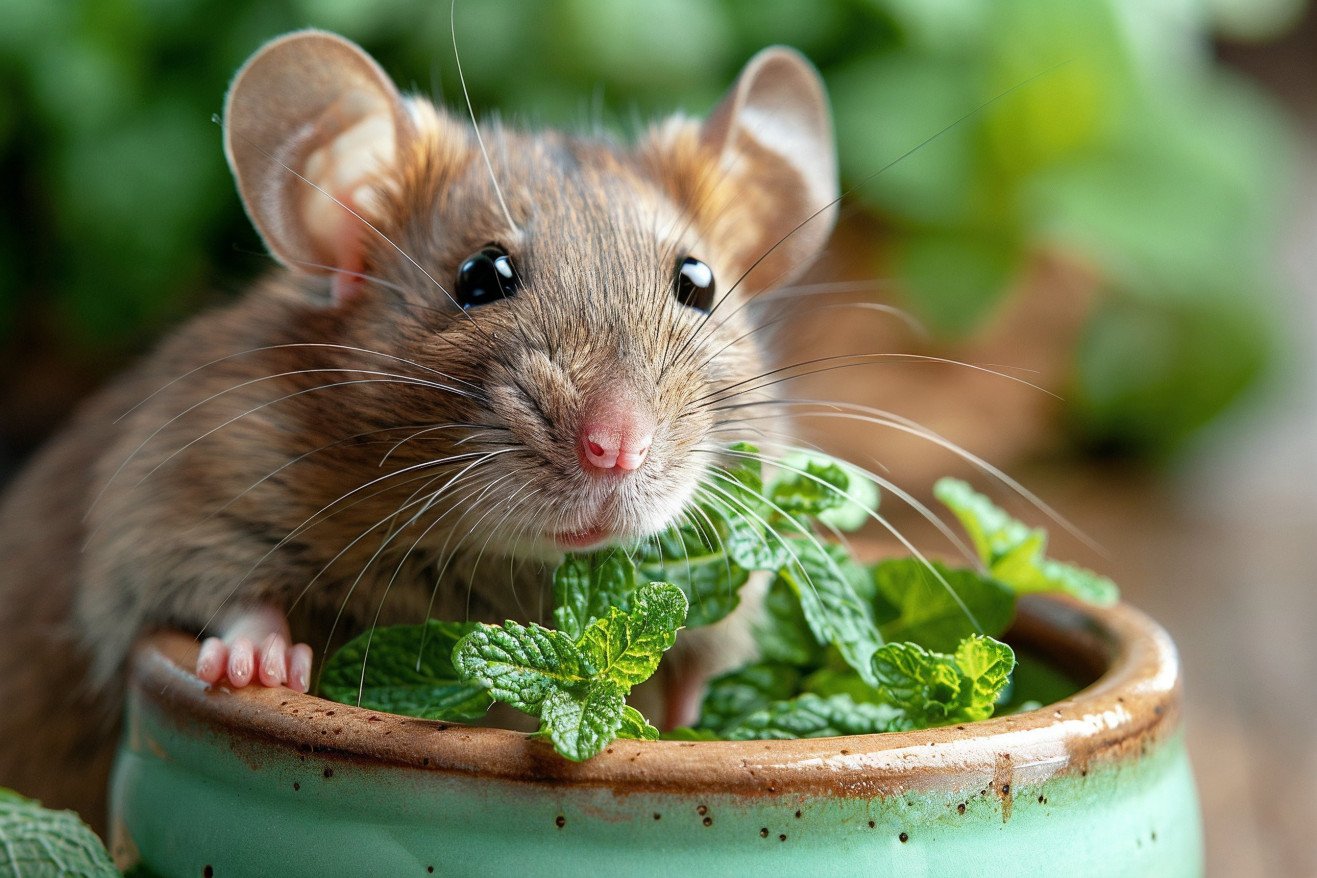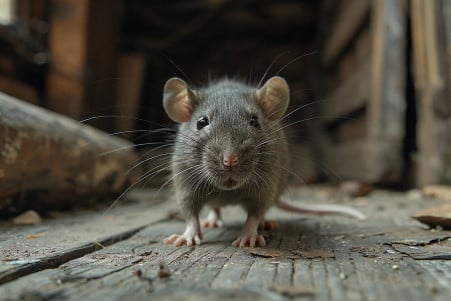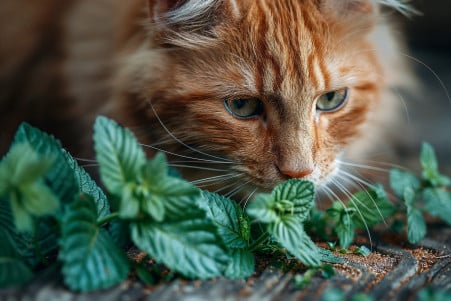What Smells Repel Rats? The Most Effective Rat Repellent Scents
28 February 2024 • Updated 27 February 2024

While there are many smells that rats will run away from, there are a few that they actually hate. Rats hate the smell of peppermint, ammonia, garlic, and clove oil, all of which are commonly found in natural rat repellents. Rats’ strong sense of smell also makes them sensitive to the smell of predators, like cat urine, which can be used to create effective repellents.
We will look at a number of studies in the fields of zoology, ethology, and pest control to uncover the smells that rats find repulsive. By looking at the biological reasons behind rats’ likes and dislikes when it comes to smell, we can determine how different smells can be used to effectively control pests.
This will help us understand the natural and commercial repellents that are on the market and how they use these smells to keep rats away.
What smells repel rats?
Understanding the Rat’s Sense of Smell
The rat olfactory system is a wonder of evolution, designed to detect a wide variety of scents with extreme sensitivity. A paper published in PMC by Donald A. Wilson shows that rats are active in developing this sensitivity, as they learn to make associations that affect their behavior. Rats learn to associate certain scents with rewards or threats, which is a critical part of their decision-making process.
In addition, a paper published in SpringerLink by Tim Otto shows that the rat olfactory system is a great model for understanding the neurobiology of memory. Rats have strong olfactory learning and memory, which means that their reactions to scents are a part of their biological makeup. This biological basis is important in developing repellents, as it helps researchers understand which scents can actually change rats’ behavior and aversions.
Understanding the intricacies of the rat olfactory system can help researchers develop more sophisticated repellents that may even be able to use rats’ natural aversions to keep them away from human spaces.
Investigating the Fear Factor: Why Rats Avoid Certain Smells
Rats have evolved to learn certain smells are dangerous, which is why they avoid them. Capsaicin, the compound that makes chili peppers spicy, has been used as a non-lethal repellent in studies that have looked at its impact on rats. One study published in ScienceDirect found that capsaicin-infused ethylene vinyl acetate shows promise as a way to keep rats away.
Meanwhile, field studies, like the one outlined in Scientific Reports, have shown how rats react to predator odors in the wild.
The results of this study indicate that wild Norway rats don’t consistently avoid predator odors in environments that they’re familiar with and that are low-risk, which suggests that their fear of these odors is based on the context.
Additionally, a study in the Journal of Chemical Ecology found that rats’ responses to synthetic predator odors are unpredictable, and that while some studies have shown that rats are indifferent to odors they haven’t co-evolved with, other studies have shown that they avoid them.
This knowledge of rats’ natural and learned aversion to certain odors has helped researchers develop repellents that are based on specific odors. With this in mind, we’ll now take a look at the commercial products that have been developed based on these biological responses.
Scent-Based Rodent Repellents on the Market
The demand for products that can help people fight back against rodent infestations has led to the development of a number of commercial scent-based repellents. For example, Pro-Pell Rodent Repellent uses a combination of essential oils, including peppermint, rosemary, and citronella, as well as soybean oil and putrescent whole egg solids to create a minty scent barrier that can repel rodents over a large area.
Meanwhile, Grandpa Gus’s Rodent Repellent Spray uses natural scents, including peppermint and cinnamon oils, to create a scent that’s unpleasant to rodents and can keep them away from treated areas.
These products show how the knowledge of the scents that rats find repellant can be used to create solutions for consumers. However, it’s important to note the regulatory status of these products. For example, Detour Gel Rat Repellent, which includes organic capsaicin, is a repellent that has been registered with the EPA and certified by the NSF, which means it’s been approved for use in environments where health is a concern.
While these commercial repellents may be effective, it’s also important to note that pest control professionals often favor more reliable long-term solutions because of the limitations of scent-based repellents. In addition to evaluating the practicality of these scents as a way to keep rats away, it’s also important to evaluate their safety, including their impact on health and the need for them to be used responsibly.
Safety Concerns of Scent-Based Rodent Repellents
While scent-based repellents are a common way to keep rats away, it’s important to note that there are potential health concerns that come with using these products. While natural scents like peppermint oil and eucalyptus are generally safe for home use, they can still be problematic. For example, essential oils can cause allergic reactions and respiratory issues, especially in people who are sensitive or have underlying health conditions.
The National Pesticide Information Center notes that using mothballs as a repellent can result in the release of toxic gases, which can be harmful.
In addition, ammonia, while effective at repelling rats, can lead to respiratory issues and even death with long-term exposure, according to a review of the literature on the use of scents to repel rats. The takeaway is that when you’re choosing repellents, you need to weigh their effectiveness against their potential impact on your health and safety and choose products that will have the least impact on you and your family.
It’s also important to make sure you’re using any repellent safely. This includes making sure that you’re using it in a well-ventilated area, avoiding skin contact, and following any dilution instructions.
While natural scents may be safer than synthetic scents, it’s always best to use products responsibly. By taking these things into account, you can make sure that you’re able to keep rats away without putting your family at risk.
How to Make Scent Repellents More Effective
If you want to use scents to repel rats, it’s important to be strategic. Rats can get used to smells, so it’s important to rotate scents and use them in combination with other pest control methods. For example, you might start by using citronella oil, which a study published in the Public Library of Science found reduced rat body weight.
To make natural scent-based repellents more effective, make sure to use them liberally in areas where rats are likely to be and in places where they could potentially enter your home. You’ll also need to reapply them regularly since the scent of natural oils like peppermint wears off over time.
Using a multi-scent approach to create a barrier is also a good idea since it will make it harder for rats to get used to the scents.
In addition to using scents, make sure to take other steps to make your home less inviting to rats, like keeping it clean, sealing up any cracks or holes, and storing food in airtight containers. The National Pest Management Association has found that 29% of American homes have had a rodent infestation, so it’s important to take a comprehensive approach to pest control.
Finally, keep in mind that while scents can be a useful part of your pest control plan, they’re most effective when used in combination with other methods and as part of a comprehensive pest control plan that may include professional services if you have a particularly stubborn infestation.
In Conclusion: The Power of Smell in Rat Repellent Methods
By delving into the world of rat smells, we have learned about the power of certain odors in repelling these stubborn creatures. From peppermint to predator smells, the best rat repellents can take advantage of the animals’ super-sensitive sense of smell.
We have looked at both biological and commercial options, and we have seen how products that are meant to keep rats away have used the animals’ natural aversion to specific smells to their advantage.
Throughout, we have seen the importance of the trade-off between effectiveness and safety, and we have seen that while natural repellents are generally safer, they still need to be used with care. The actionable tips have shown how important it is to combine smell-based repellents with other pest control methods in order to get the best results.
In summary, knowing the smells that repel rats is an important part of the pest control puzzle. However, it’s important to always make sure that safety is the top priority and that a multi-pronged approach is used for the best long-term results.
People who are dealing with serious rat problems should consult with a professional to make sure that they can ensure a rat-free environment with their expert strategies and interventions, which will provide a more complete answer.


